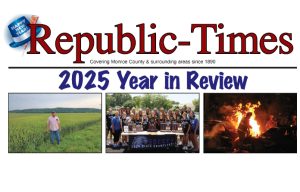Still no budget for Illinois
Illinois continues to flirt with financial disaster as the state readies to enter its third year without a budget. The fiscal year begins July 1, and thus far legislators have been unable to agree on a budget. Friday morning, the House voted to approve a spending bill, 90-25. They must vote a second time before the bill will move on to the Senate and, finally, the governor. They adjourned for the day without doing so and will meet again Saturday. Both houses, as well as the governor, must also approve a revenue bill, something that is proving difficult as they consider a tax hike.
House lawmakers refused to pass a bill that would increase the personal income tax from a rate of 3.75 percent to 4.95 percent. Madigan said the House would meet in continuous session in June.
Gov. Bruce Rauner then called the General Assembly back to Springfield for a special session last week, just 10 days before the fiscal year deadline.
“This is it. It’s the last day to pass a balanced budget compromise,” Rauner said in a statement Friday morning. “If lawmakers can’t get a plan to my desk today, I will have no choice but to keep them here in Springfield until the job is done.”
The House attempted to push through several items on Rauner’s pre-budget list this week to no avail, the State Journal-Register reported. In a recent press release, Jerry Costello II, D-Smithton, said he agreed to a number of Rauner’s reforms, including a four-year property tax freeze.
“All of these issues are items that the governor has asked for before he would agree to a budget,” he said. “The only way that we will solve this crisis is by working together, and many Republicans supported parts of these bills. It’s my hope that this will be seen as a gesture of good faith to the governor and that he will finally compromise before there is more harm done to our state.”
If a budget is not passed by the end of the day Friday, Illinois could be the first state with a junk credit rating. That would make borrowing money to pay down debts even more expensive. Additionally, the state’s backlog of unpaid bills sits at $14.7 billion.
The Illinois Lottery stopped paying winnings of more than $25,000 this week and is suspending Powerball and Mega Millions ticket sales. On top of that, the Illinois Department of Transportation will have to put a stop to any state funded road projects at the end of the day Friday.
The legislature passed a stopgap budget at the final hour last year to provide a year’s worth of transportation and education funding. However, lawmakers chose to focus on a full spending plan as time ran out Friday.
Waterloo school superintendent Brian Charron told the public at a recent school board meeting that the district may need to delay opening schools for the 2017-18 school year without a state budget. The lack of a state budget would cause cooperatives that Waterloo pays into to be without sufficient funding, he said.
Revamping the school funding formula would also be put on hold. Under one of the proposals in the general assembly, Senate Bill 1, Waterloo school district would receive an additional $82,125.11. Columbia schools would receive $61,979.37 in additional funds and Valmeyer would receive $24,467.86.
With this evidence-based formula, no school district would receive less than it currently receives, and new monies would be funneled to the poorer districts. Rauner called the proposal an unfair bailout of Chicago Public Schools and said he will veto it. On Wednesday, Columbia school superintendent Dr. Gina Segobiano co-hosted a town hall meeting on school funding reform at Columbia Middle School.
State Sen. Paul Schimpf (R-Waterloo) began promoting an alternative school funding proposal last week that reportedly would give more money to southern Illinois schools. The legislation, SB 1124, would give $119,135.09 more a year to Columbia, $157,858.70 to Waterloo and $48,913.77 to Valmeyer.
“This compromise represents a unique opportunity to give our southern Illinois school districts the resources they need to educate our children,” Schimpf said.
The City of Columbia, City of Waterloo and Monroe County recently told the Republic-Times that they are feeling little to no effects of the state budget stalemate. Additionally, executive director Rob Cole said Human Support Services was up to date on state funding as of the May 31 deadline.
Paulette Hamlin, Western Egyptian Economic Opportunity Council executive director, said senior programs will remain fully funded through Sept. 30 without a state budget.






